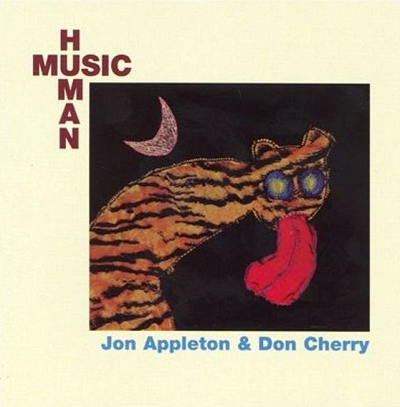7. Don Cherry & Jon AppletonHuman Music

I’m trying to remember the first time I heard Human Music. In my early 20s, I started listening to a lot of free music and improvised music. I had started that journey in my teens and I just went full bore in my early 20s, and was really focused more on that than anything else. But the first time I heard Human Music, it was the first time I had engaged the relationship of those sounds in those ways, and there was something that stuck out. They’re both such phenomenal players, John Appleton [on synthesiser] and Don Cherry [on pocket trumpet and percussion]. I feel like it leans a quite a bit more into John Appleton’s world, but there was no slack on Don Cherry’s side, he was right there with him the entire time. And you know, that’s a testament to a great artist who can improvise and can listen, which is what improvisation is all about. It’s about listening. First and foremost, you have to understand your surroundings. It’s not about being as crazy as you possibly can when you get your solo. It’s about understanding the space in that moment and understanding the communication that you have with your collaborator. Or if it’s solo, understanding the relationship you have with the physical space in the room and the things that you’re doing and how that moves. It’s all about listening. And that, I think, is a a true example of that. It’s a classic.


